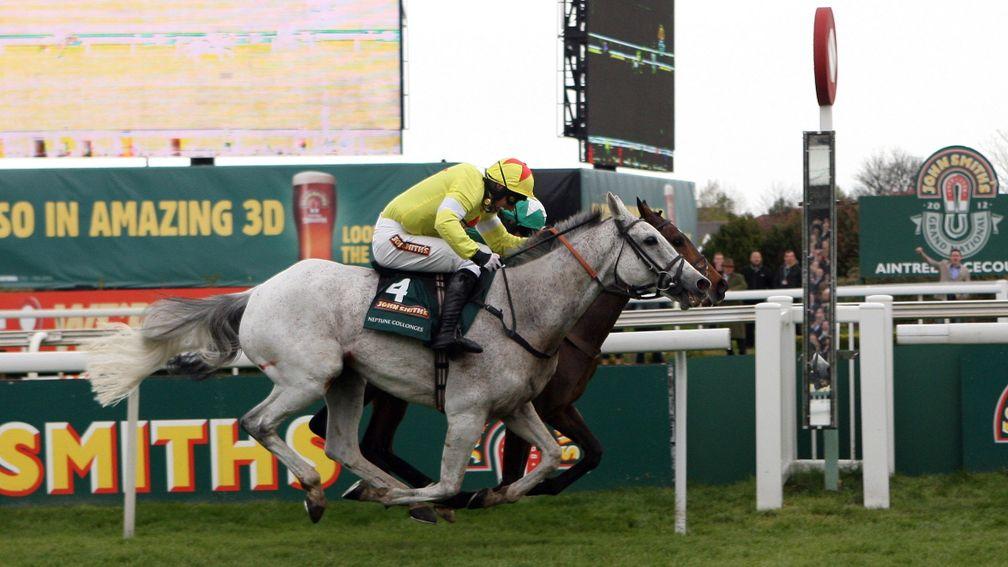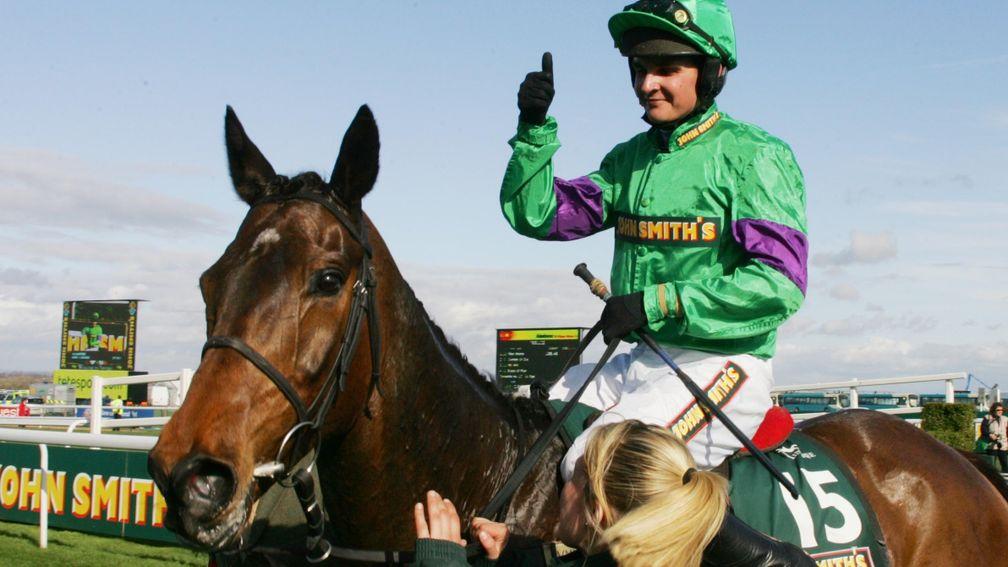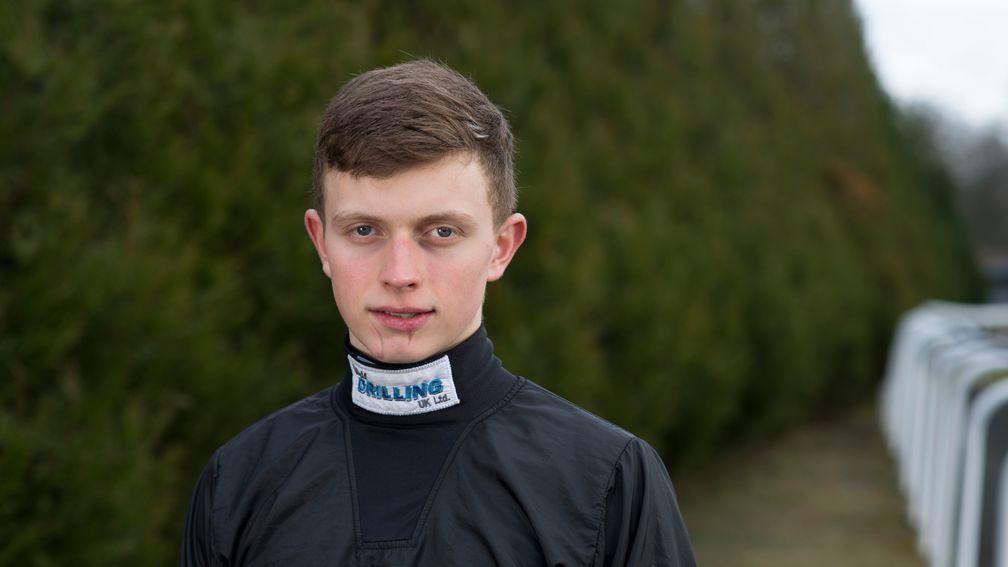From short heads to long odds – John Randall's Grand National records
Ten notable results in the history of the world's most famous race

Oldest winner
Peter Simple triumphed in the Grand National as an 11-year-old in 1849 and again when becoming the oldest horse to win the race at the age of 15 in 1853. On that occasion he relished the testing conditions to come home three lengths clear of Miss Mowbray, the previous year's winner.
The next-oldest winners have been 13-year-olds Why Not (1894) and Sergeant Murphy (1923). Five five-year-olds have won, but no horse younger than seven is now eligible.
Smallest margin
Neptune Collonges was in front for only one inch of the 2012 Grand National, but it was the inch that mattered. He caught Sunnyhillboy in the very last stride to triumph by a nose – the smallest margin of victory in the race's history. The Paul Nicholls-trained grey was retired immediately after the race.
A “nose” had not long been introduced as an official margin in British races. The previous narrowest margin was a short head.
Longest-priced winner
Five horses have won the big race at a starting price of 100-1 – Tipperary Tim, Gregalach, Caughoo, Foinavon and Mon Mome – and Foinavon takes pride of place because of his Tote odds.

The dramatic pile-up at the 23rd fence in 1967 allowed the tail-ender to poach a clear lead under John Buckingham, and he paid 444-1 on the Tote. Seldom has such a moderate horse achieved legendary status.
Longest-priced favourites
Two current world records were set in the Grand National - for the biggest field and the longest-priced favourite.
It was such an open race in 1964 that four horses started co-favourites at an SP of 100-7 (just over 14-1). Of those market leaders, Pappageno's Cottage finished tenth but Flying Wild, the Queen Mother's Laffy and Time all fell. Victory went to 18-1 shot Team Spirit.
Biggest field
Modern safety limits mean that the world record for the biggest field in any race – 66 runners in the 1929 Grand National – is unbreakable. The current limit for the race is 40.
Trouble had been expected at the start but The Sporting Life's report began: “There was no necessity to start the horses in two lines, as there was room enough with one long strand of the starting gate stretching right across the track.”
Gregalach, a 100-1 shot, came home six lengths clear of topweight Easter Hero.
Winningmost jockey
The Grand National is such a lottery that many great jockeys never win it, so George Stevens must have been special to triumph in it a record five times between 1856 and 1870.
Stevens' winners were Freetrader, the sisters Emblem and Emblematic, and dual hero The Colonel. He was killed when thrown from his hack when riding on Cleeve Hill in 1871.
The trainers' record is four wins by Fred Rimell and Ginger McCain.
Youngest and oldest jockeys
James Bowen will, at the age of 17 years 33 days, become the youngest jockey to win the Grand National if Shantou Flyer scores on Saturday. The record is currently held by Bruce Hobbs, who was 17 years 88 days old when winning on Battleship in 1938.

The oldest winning jockey is amateur Dick Saunders, aged 48 years 249 days when Grittar triumphed in 1982.
Unique 1-2 by a trainer
Only one trainer has had both the winner and the runner-up in the big race and that was Fred Withington in 1908. Rubio, a 66-1 shot who was the first US-bred to win the race, made most of the running and came home ten lengths clear of his stablemate, the mare Mattie Macgregor.
Withington, who at the time trained at Danebury in Hampshire, later won the first Cheltenham Gold Cup with Red Splash.
Best perfect record
Of the seven horses who have won the Grand National more than once, Reynoldstown is the only one who was never beaten in the race.
Red Rum, the only triple winner, was beaten into second place on his two other runs, and the other dual winners were all beaten at least once. But Reynoldstown, who triumphed on his first two attempts (1935, 1936), was not asked to tackle the race again.
His owner-trainer Noel Furlong said: “There is such a thing as taking the pitcher to the well once too often. As he has won in successive years, I think he has done enough.”
Greatest performance
The identity of the horse who put up the best ever performance in the Grand National is a matter of opinion. It would be tempting to nominate one of Cloister, Manifesto, Jerry M and Poethlyn, the four giants who triumphed under the unbeatable record weight of 12st 7lb (the current top weight is 11st 10lb).
However, dual Gold Cup hero Easter Hero deserves top spot by virtue of carrying 12st 7lb into second place in the world record field of 1929. The favourite led nearly all the way but, with a badly twisted plate, tired and was beaten six lengths by Gregalach. It was a magnificent effort trying to give 17lb to a top-class rival.
Enjoy the daily Racing Post newspaper in full with our digital newspaper. Available to download on any device from 9pm every evening, giving you tomorrow’s paper the night before - exclusive to Members' Club Ultimate. Join here
Published on inGrand National festival
Last updated
- Grand National 2025: date, preview and best bets
- 'I'd love to have a crack at the Grand National' - Flooring Porter team weigh up Aintree following Listowel heroics
- 'They had no chance and kept others out' - Davy Russell believes qualifying races for the Grand National should be introduced
- Bookmakers report Grand National turnover as 'flat' compared with last year
- 'It's a different feeling, it's unique, it's the Grand National' - Aintree hero I Am Maximus gets a huge homecoming welcome
- Grand National 2025: date, preview and best bets
- 'I'd love to have a crack at the Grand National' - Flooring Porter team weigh up Aintree following Listowel heroics
- 'They had no chance and kept others out' - Davy Russell believes qualifying races for the Grand National should be introduced
- Bookmakers report Grand National turnover as 'flat' compared with last year
- 'It's a different feeling, it's unique, it's the Grand National' - Aintree hero I Am Maximus gets a huge homecoming welcome